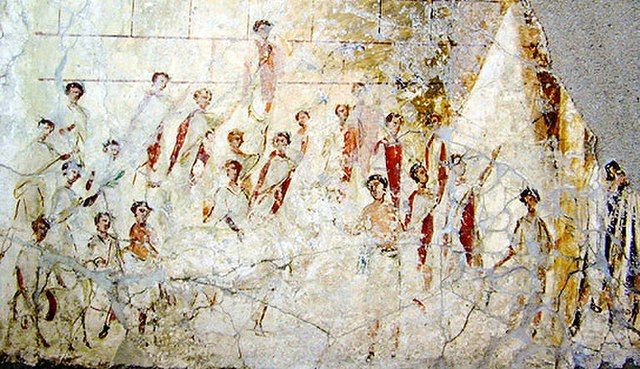The Parilia or Palilia was an ancient Roman festival of rural character performed annually on 21 April, aimed at cleansing both sheep and shepherd. It was carried out in acknowledgment to the Roman deity Pales, a deity of uncertain gender who was a patron of shepherds and sheep.
Festa di Pales, o L'estate (1783), a reimagining of the Festival of Pales by Joseph-Benoît Suvée
Festivals in ancient Rome were a very important part in Roman religious life during both the Republican and Imperial eras, and one of the primary features of the Roman calendar. Feriae were either public (publicae) or private (privatae). State holidays were celebrated by the Roman people and received public funding. Games (ludi), such as the Ludi Apollinares, were not technically feriae, but the days on which they were celebrated were dies festi, holidays in the modern sense of days off work. Although feriae were paid for by the state, ludi were often funded by wealthy individuals. Feriae privatae were holidays celebrated in honor of private individuals or by families. This article deals only with public holidays, including rites celebrated by the state priests of Rome at temples, as well as celebrations by neighborhoods, families, and friends held simultaneously throughout Rome.
Piece of the fragmentary Fasti Praenestini for April, showing the Vinalia (VIN) and Robigalia (ROB)
A rare depiction of Roman men wearing the toga praetexta and participating in what is probably the Compitalia



